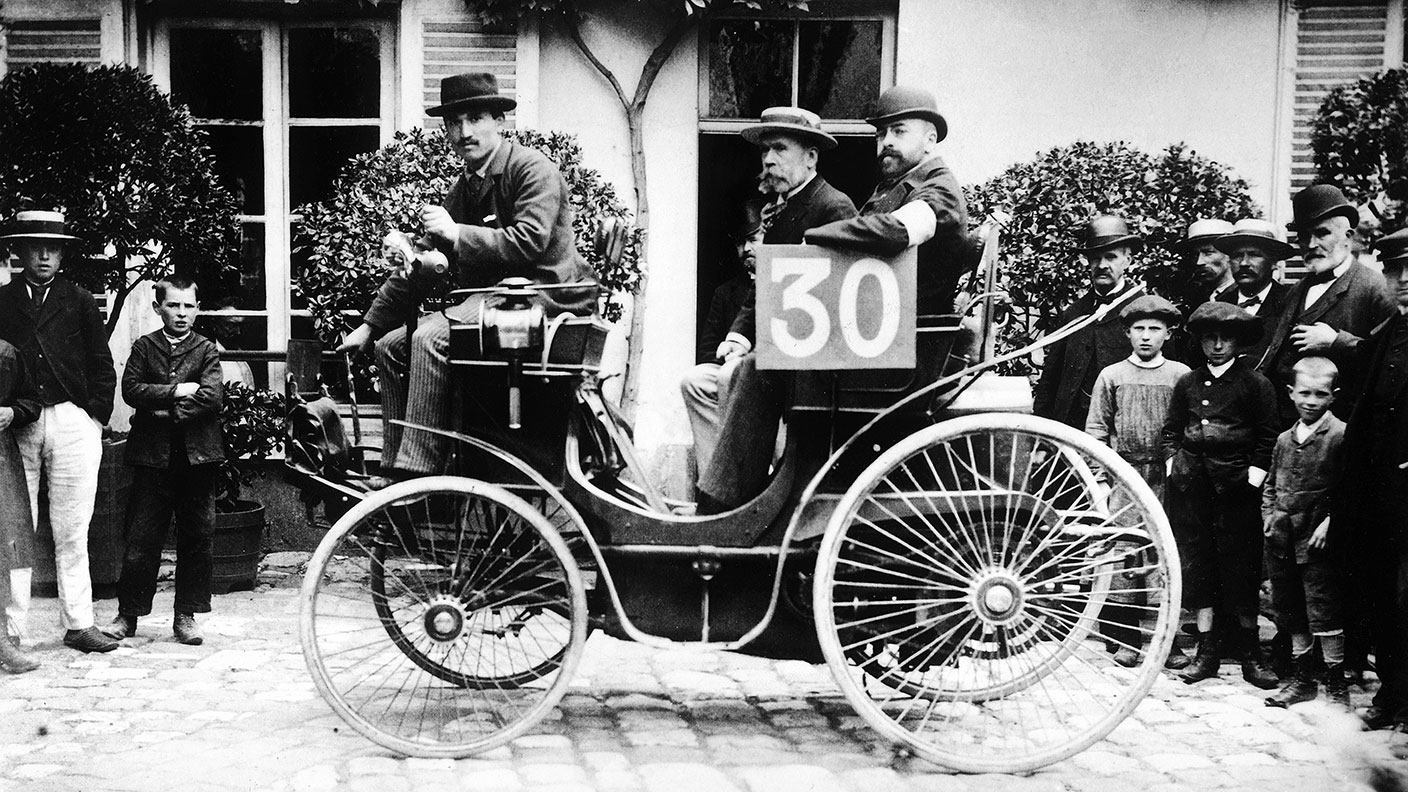22 July 1894: Paris to Rouen motor car competition
The Paris to Rouen motor car competition of 1894 pitted petrol cars against steam-powered vehicles in a thrilling 79-mile event.


Get the latest financial news, insights and expert analysis from our award-winning MoneyWeek team, to help you understand what really matters when it comes to your finances.
You are now subscribed
Your newsletter sign-up was successful
Want to add more newsletters?

Twice daily
MoneyWeek
Get the latest financial news, insights and expert analysis from our award-winning MoneyWeek team, to help you understand what really matters when it comes to your finances.

Four times a week
Look After My Bills
Sign up to our free money-saving newsletter, filled with the latest news and expert advice to help you find the best tips and deals for managing your bills. Start saving today!
If you've ever negotiated the Periphrique around Paris, you'll know that wishing to see more cars around the French capital is masochistic. But that's exactly what Le Petit Journal set out to do on this day in 1894.
The previous December, the newspaper's editor, under the nom de plume of Jean sans Terre (real name Pierre Giffard), announced with fin-de-siecle pomp a "concours des voitures sans chevaux" from Paris to Rouen. This competition for cars without horses is often cited as the world's first motor race.
Only, it wasn't really a race at all. It was a competition for engineers both professional and amateur to showcase "the vehicles of the future".
MoneyWeek
Subscribe to MoneyWeek today and get your first six magazine issues absolutely FREE

Sign up to Money Morning
Don't miss the latest investment and personal finances news, market analysis, plus money-saving tips with our free twice-daily newsletter
Don't miss the latest investment and personal finances news, market analysis, plus money-saving tips with our free twice-daily newsletter
Ten thousand gold francs were up for grabs, with 5,000 francs going to the car that was judged to be closest to the ideal standards set by the newspaper: not dangerous, easy to drive and cheap during the journey.
One hundred and two readers answered Le Petit Journal's challenge, of which only a handful made it to qualifying, each paying ten francs.
At one minute past eight on the morning of 22 July 1894, the 21 qualifiers set off on the 79-mile-trip to Rouen. Roland, the newspaper's reporter, waxed lyrical on the fine weather and the great crowds thronging the pavements and, much to the consternation of the police, the roads too.
Riding in the lead car, Roland noted the amazement on the faces of spectators as the cars left Paris, winding their way through the French countryside. Old men waved from windows, pretty girls threw flowers, whilst "braves paysans" came up to offer fruit to the drivers.
Averaging a blistering speed of 12mph, Jules-Albert de Dion was first to cross the line in his steam-powered car. But as his vehicle required a stoker, it wasn't deemed easy to drive, so he had to make do with second prize.
Five minutes later, Albert Lematre came pootling along in his petrol-powered Peugeot to claim the 5,000 francs, which was shared with Panhard today a maker of armoured cars.
Get the latest financial news, insights and expert analysis from our award-winning MoneyWeek team, to help you understand what really matters when it comes to your finances.

-
 Should you buy an active ETF?
Should you buy an active ETF?ETFs are often mischaracterised as passive products, but they can be a convenient way to add active management to your portfolio
-
 Power up your pension before 5 April – easy ways to save before the tax year end
Power up your pension before 5 April – easy ways to save before the tax year endWith the end of the tax year looming, pension savers currently have a window to review and maximise what’s going into their retirement funds – we look at how
-
 31 August 1957: the Federation of Malaya declares independence from the UK
31 August 1957: the Federation of Malaya declares independence from the UKFeatures On this day in 1957, after ten years of preparation, the Federation of Malaya became an independent nation.
-
 13 April 1960: the first satellite navigation system is launched
13 April 1960: the first satellite navigation system is launchedFeatures On this day in 1960, Nasa sent the Transit 1B satellite into orbit to provide positioning for the US Navy’s fleet of Polaris ballistic missile submarines.
-
 9 April 1838: National Gallery opens in Trafalgar Square
9 April 1838: National Gallery opens in Trafalgar SquareFeatures On this day in 1838, William Wilkins’ new National Gallery building in Trafalgar Square opened to the public.
-
3 March 1962: British Antarctic Territory is created
Features On this day in 1962, Britain formed the British Antarctic Territory administered from the Falkland Islands.
-
10 March 2000: the dotcom bubble peaks
Features Tech mania fanned by the dawning of the internet age inflated the dotcom bubble to maximum extent, on this day in 2000.
-
9 March 1776: Adam Smith publishes 'The Wealth of Nations'
Features On this day in 1776, Adam Smith, the “father of modern economics”, published his hugely influential book The Wealth of Nations.
-
 8 March 1817: the New York Stock Exchange is formed
8 March 1817: the New York Stock Exchange is formedFeatures On this day in 1817, a group of brokers moved out of a New York coffee house to form what would become the biggest stock exchange in the world.
-
7 March 1969: Queen Elizabeth II officially opens the Victoria Line
Features On this day in 1969, Queen Elizabeth II took only her second trip on the tube to officially open the underground’s newest line – the Victoria Line.